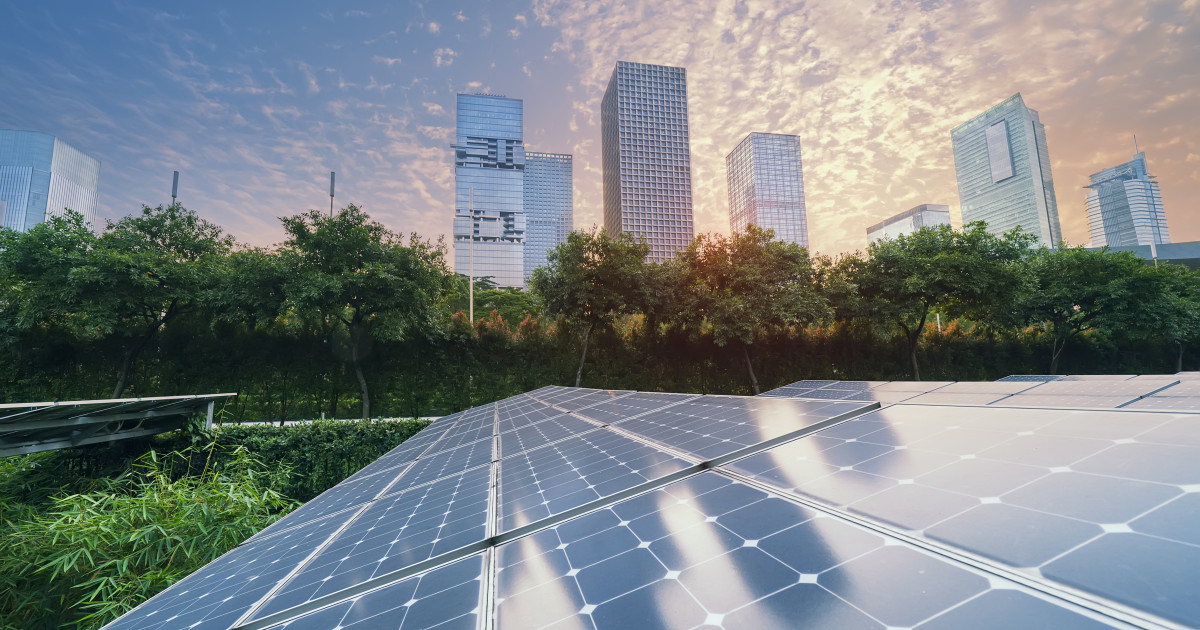
[ad_1]
All buildings to be built from 2021 must respect a consumption standard close to zero, mostly ensured from renewable sources, according to a statement from the organization Efficient Romania, cited by Agerpres.
The end of the year brings an important change in the sector of the new private building, whether we are talking about individual homes, multi-family housing blocks, office buildings or other types of spaces.
Thus, in Romania, as in all other member states of the European Union, Buildings for which the reception at the end of the works is carried out on the basis of a building permit issued as of December 31, 2020 must comply with the nZEB standard. (almost zero energy building), that is, having an energy consumption almost equal to zero, guaranteed to a large extent by renewable energy sources, but also by a high degree of energy efficiency.
For public buildings, this obligation was already valid from the end of 2018.
What does a building with almost zero energy consumption mean?
Although there is no single European definition, it is a building with very high energy performance, which has a substantial reduction in energy consumption for energy services.
“In short, without reducing thermal comfort, the amount of energy required to be consumed in the building is at least 60% less than an ordinary building, and a significant percentage of the energy consumption must come from renewable sources (photovoltaic or wind energy), heat pumps or system heat central heating, from the perspective of its efficiency and decarbonisation ”, explains Radu Dudău, director of the Energy Policy Group (EPG) and coordinator of the Efficient Romania project.
In national legislation, the building whose energy consumption is almost zero is that “building with a very high energy performance, where the energy requirement to guarantee energy performance is almost zero or very low and is covered in a proportion of at least 30% with energy from renewable sources, including renewable energy produced in the front on site or nearby, within a 30 km radius from the building’s GPS coordinates, as of 2021“.
Energy performance means the energy required to meet the needs of the normal use of the building, needs that mainly include heating, domestic hot water, cooling, ventilation and lighting. For the periods 2031-2040, 2041-2050 and after 2051, the mandatory percentage of energy from renewable sources will be established by Government Decision.
At the same time, mayors of localities with more than 5,000 inhabitants must develop local multi-year plans to increase the number of new and existing buildings whose energy consumption is almost equal to zero, which can include differentiated objectives according to climatic zones and construction functions.
The previous provisions are included in Law n. 101/2020, which modifies Law No. 372/2005 on the energy efficiency of buildings and which transposes Directive 2018/844 / EU of May 30, 2018 amending Directive 2010/31 / EU on the energy efficiency of buildings and Directive 2012 / 27 / EU on energy efficiency.
Buildings are a key segment of the EU’s energy efficiency policy because they are responsible for around 40% of final energy consumption and a large part of carbon dioxide (CO2) emissions. The European Commission has set itself the goal of making Europe the first CO2-neutral continent by 2050, which requires decarbonising the construction sector.
The Energy Performance Directive requires Member States to draw up national plans to increase the number of buildings with almost zero energy consumption, both for new buildings and for renovating existing buildings.
“The renovation of old buildings to bring them up to the nZEB standard is crucial, because they represent the majority of the real estate portfolio and the majority will be in use by 2050. In Romania, extensive renovation is even more important, since being that most of the buildings are old and in a much more precarious state than in Western Europe ”, also declares Radu Dudău.
The construction sector will have to adapt quickly to new challenges, currently lacking sufficient experience and human resources.
“It is an area where we need to train skills, qualified personnel, whether we are talking about designers, architects, engineers, workers, etc. So it is an area that needs training and investment, but it will be able to absorb a lot of manpower. of ample European funds for education, qualification or professional retraining programs in this field ”, concludes the coordinator of the Efficient Romania project.
Publisher: AC